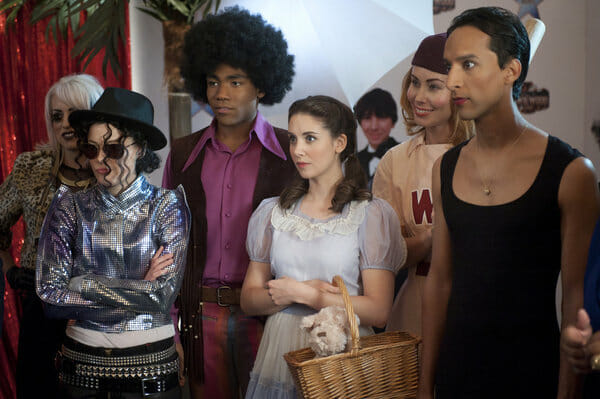Community: “Contemporary Impressionists” (3.12)

Last week was a particularly important one for Community, given its struggle to obtain a fourth season, so I’m glad that the episode that received such a huge ratings bump. It looks to have been partially the result of a concerted fan effort and, perhaps more importantly, the lack of The Big Bang Theory airing during the same time slot. We’ll see whether all of those viewers tune in again, but it was about as traditional a sitcom episode as anything Community does these days, and so likely a strong move. Had “Contemporary Impressionists” been the episode to air, the show’s chances of success would likely be much slimmer.
Not to say that it was a bad episode—in fact quite the opposite. But alongside clever plotting and many heartfelt moments, “Contemporary Impressionists” was overflowing with pop culture references and cartoonish jokes. It was also pretty insular. You didn’t need to know much about Shirley to understand her desire to re-marry, but “Impressionists” relied a lot on the relationship between Troy and Abed that’s been building since the first season. Because this episode was Abed-centric, it felt silly, but that only masked its high-stakes forward momentum.
-

-

-

-

-

-

-

-

-

-

-

-

-

-

-

-

-

-

-

-

-

-

-

-

-

-

-

-

-

-

-

-

-

-

-

-

-

-

-

-








































